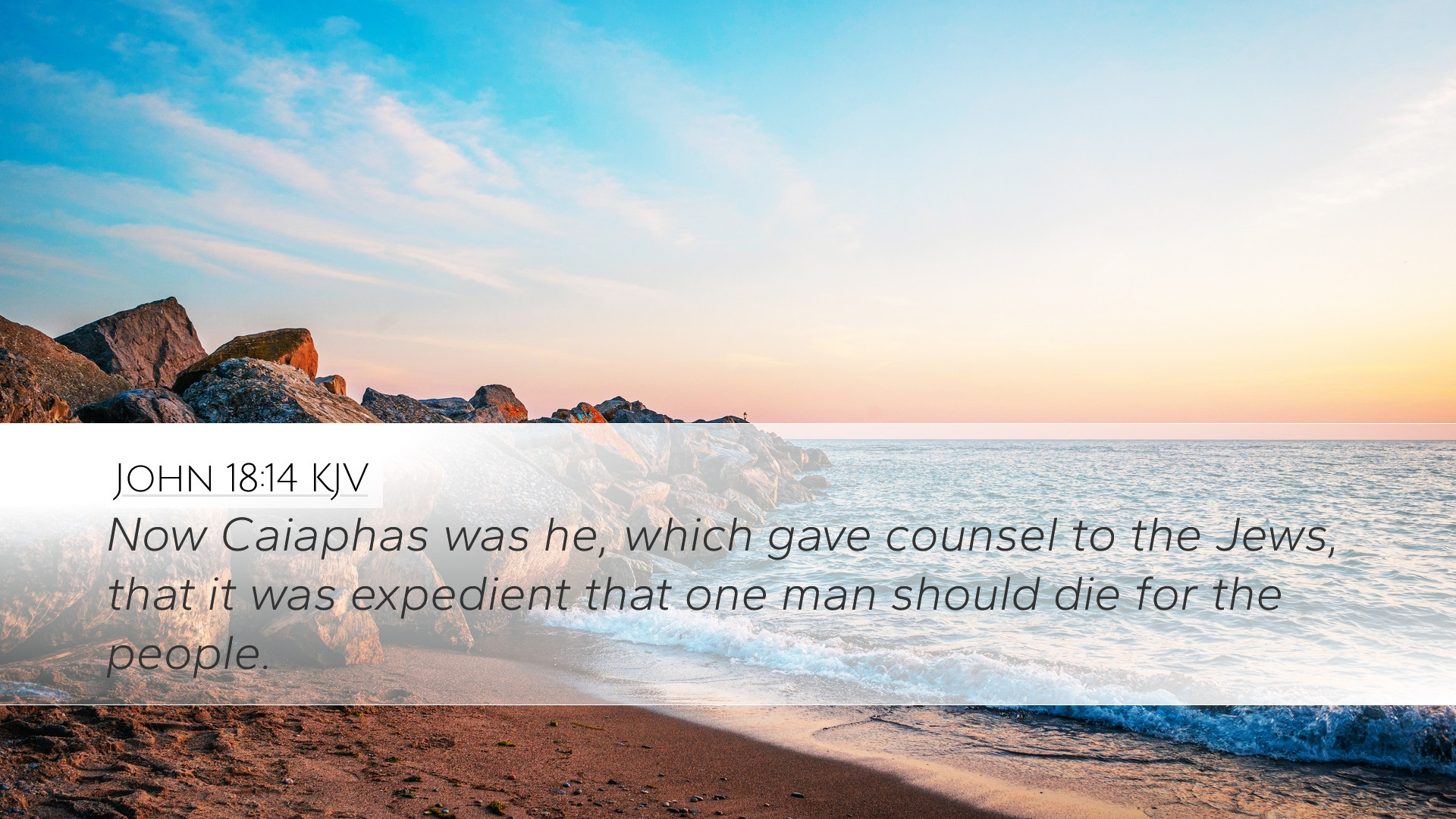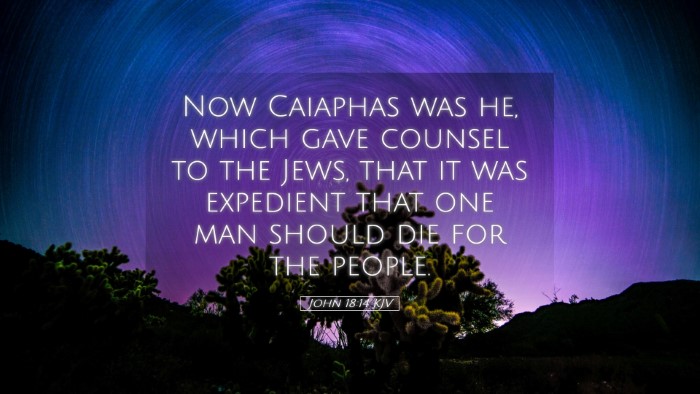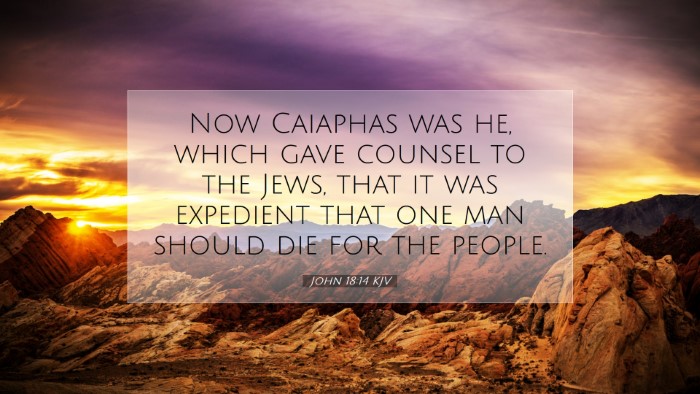Commentary on John 18:14
John 18:14 states: "Now Caiaphas was he, which gave counsel to the Jews, that it was expedient that one man should die for the people."
Context and Significance
This verse serves as a pivotal point in the Gospel of John, linking the events leading to the crucifixion of Jesus with the theological underpinning that His death was preordained for the sake of humanity. The backdrop of Caiaphas's counsel reflects the tension between civil authority and divine purpose, illustrating the prophetic nature of Jesus’s impending sacrifice.
Insights from Commentators
Matthew Henry's Commentary
Matthew Henry emphasizes the character of Caiaphas as the high priest and the political machinations involved in the Sanhedrin's decision-making process. He notes:
- Political Expediency: Caiaphas's statement underlines the pragmatic viewpoint of the Jewish leaders who saw Jesus as a threat to their power and religious order.
- Divine Sovereignty: Henry marvels at how God uses even the wicked schemes of man to fulfill His providential plan, foreshadowing the ultimate sacrifice of Christ.
- Foreshadowing of Sacrifice: The idea that one man should die for the people is a profound theological assertion pointing to the substitutionary atonement of Christ.
Albert Barnes' Notes
Albert Barnes provides a detailed analysis of the motivations behind Caiaphas's counsel:
- Caiaphas's Role: As both a spiritual and political leader, Caiaphas's remarks suggest an astute understanding of the religious and social dynamics of his time.
- Expediency vs. Righteousness: Barnes points out that Caiaphas's counsel is driven by self-preservation rather than a genuine concern for the people's welfare, highlighting a conflict between moral righteousness and expedient decision-making.
- Prophetic Insight: The implication that Jesus's death would serve a greater purpose resonates with the broader theme of sacrificial love throughout the New Testament.
Adam Clarke's Commentary
Adam Clarke delves considerably into the implications of the term "expedient" and the prophetic utterance of Caiaphas:
- Spiritual Blindness: Clarke suggests that Caiaphas exemplifies the blindness of spiritual leaders who fail to recognize the Messiah in their midst.
- Messianic Sacrifice: His statement foreshadows the messianic role of Jesus, casting Him as the innocent sacrifice for the guilty.
- Purpose of Jesus’s Death: Clarke emphasizes that the death of Jesus is not merely a political maneuver but part of God’s redemptive plan for humanity, a theme integral to Christian theology.
Theological Reflections
From this commentary, various theological themes emerge that have implications for pastoral ministry and scholarly study:
- The Nature of Leadership: The character of Caiaphas as a leader challenges both pastors and church leaders to consider their motives—are they acting for the sake of position and power or for the good of the flock?
- Redemptive Purpose: Scholars are invited to reflect on the overarching narrative of redemption present in this verse, recognizing that God can bring good out of evil actions.
- Substitutionary Atonement: The idea that one man (Jesus) died for many should inspire deeper exploration into the theological implications of atonement and its application in the lives of believers.
Conclusion
John 18:14 encapsulates a moment where human intentions intersect with divine purpose, offering critical insights for pastors, students, theologians, and Bible scholars. The counsel of Caiaphas not only reflects a historical figure but serves as a profound statement about the nature of sacrifice and the necessity of Christ's death for the sake of humanity. As we reflect on this verse, we are reminded that God's plans often unfold through seemingly incongruent means, inviting us to trust in His sovereign will.


